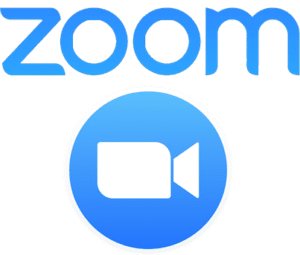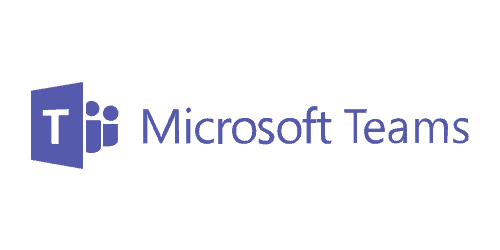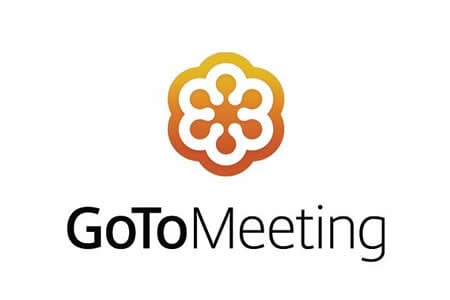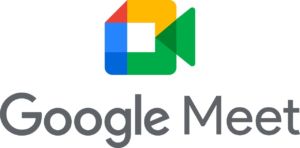While email is fast and convenient, nothing compares to the impact of face-to-face meetings. In fact, studies reveal that meeting face to face is 34 times more successful than communicating via email.
With more employees working remotely, traveling and enjoying flexible schedules, successful personal conversations rely on the right video conferencing software for your team.
Fortunately, there’s an impressive market with a variety of video conferencing software. The best selection for your company will depend on several factors, such as the number of employees you have, your budget and any special features you may need. We’ve analyzed the top eight video conferencing software programs for 2025 to help you make an informed decision. Plus, we offer a quick overview of the essential video conferencing equipment you’ll need.
Just remember: Cost and features will vary!
Zoom
Zoom is a heavy hitter in the video conferencing world because of the many options included in every plan. The platform also boasts reliable video, clear audio and instant sharing capabilities that make it our favorite option for video conferencing. Many Zoom users have switched from other conference call software due to frustrations with those platforms.
Zoom is the ideal web meeting software for users who want to simply and effectively connect with customers and clients remotely. It also has Chrome and Linux OS support for increased flexibility and secure socket layer (SSL) encryption to guarantee secure communications.
Zoom is one of the most used online meeting platforms, and it is known for its simple and stable video chat software.
Pros:
- Easy to use
- High-quality video conference sessions
- Breakout rooms, screen sharing and virtual backgrounds
Cons:
- 40-minute limit on free plan for group meetings
- Can be resource-intensive
All Zoom plans include:
- Screen sharing from desktops, tablets or mobile devices
- Whiteboarding
- HD video and voice
- Unlimited number of meetings per month
- Secure Socket Layer (SSL) encryption
- Chat and messaging (private and group)
- Scheduling with Chrome extensions
- Meeting record option
- Ability to join a meeting by telephone
- Instant or scheduled meetings
- Online support
- Breakout rooms (up to 50 separate sessions)
- AI-powered meeting features like real-time transcription and meeting summaries
While there’s a free version of Zoom, its features and capabilities are limited. For advanced features like user management, interoperability, custom meeting IDs for individual participants, phone support and managed domains, you must subscribe to a premium plan. Fortunately, paid options are typically less expensive than comparable offerings from other providers.
Considerations: Zoom is ideal for small businesses, educators and casual users, and is flexible for webinars, classes and team meetings.
Use Cases: Zoom works well for web conference meetings, virtual classrooms and remote collaboration.
Cost:
- Free plan (40-minute group limit)
- Paid plans start at $15.99/month for up to 100 participants.
Participants: The number of participants allowed per meeting will vary based on the plan you select. You have the option to add more participants with every plan except the free version.
Zoom Webinars & Events
Does your company conduct webinars or live demos? Zoom Webinars and Events let you engage with an unlimited audience in live, virtual events. In Zoom Rooms, wired and wireless content sharing is available, as well as the option to remotely control and monitor meetings from one centralized interface. You can also implement digital signage and scheduling displays to help enhance office communication and make booking meetings easy.
Microsoft Teams
Microsoft Teams is built for efficient collaboration, featuring seamless integrations with Microsoft 365 applications such as Word, Excel, SharePoint and Skype for Business.
This program was designed in response to the growing number of collaboration tools, like Slack, that have dominated the market in recent years. Microsoft Teams is a catch-all chat tool for the workplace, but its video conferencing option is just as compelling and powerful. Users can launch video conferences directly from their chats.
Pros:
- Great integration with Microsoft 365
- File sharing, collaboration and screen sharing
- Excellent for project management
Cons:
- Complex for new users
- The free version lacks advanced features
All Microsoft Teams plans include:
- Web versions of Word, Excel and PowerPoint
- File storage and sharing
- Ability to host up to 300 users at a time
- 24/7 phone and web support
Considerations: It’s perfect for businesses that already use Microsoft Office and are looking to facilitate team collaboration and video conferencing.
Use Cases: Iealt for team meetings, project management and document collaboration.
Cost:
- Free version available
- Paid plans start at $5/month per user, including Microsoft 365
One of the newest features included in Microsoft Teams allows users to invite guests that are not part of their enterprise’s Azure Active Directory. In addition, the mobile version of Microsoft Teams supports voicemail on Android and iOS.
GoToMeeting
Even though GoToMeeting no longer dominates the video conferencing space, it remains a highly polished remote meeting software with a long list of features that would satisfy the needs of most businesses.
This user-friendly software has a few important advantages over its competitors, including its polling and “raise a hand” features. GoToMeeting also allows unlimited video meetings and secures those meetings with end-to-end encryption.
This is a reliable video conference system offering high-quality video and audio performance, making it a dependable choice.
Pros:
- HD video and audio ensure clear communication
- Unlimited cloud storage for meeting recordings
- Meeting transcription and screen-sharing features
- Can host up to 3,000 participants
Cons:
- Higher cost, making it less suitable for small businesses or startups
- Occasional lag issues during large-scale meetings
- Interface could be more modern
Use Cases: Best for companies with large-scale webinars or corporate training needs.
Cost:
- Prices start at $12/month per user for up to 150 participants
- Higher-tier plans are available for larger meetings with more participants
All GoToMeeting plans include:
- 24/7 customer care
- HD video
- Unlimited meetings
- Screen sharing from desktops, tablets or mobile devices
- Messaging
- Web audio — no phone required
- Security
Participants: GoToMeeting allows 10 to 250 participants, depending on the type of plan purchased. However, the free version allows a maximum of three participants, versus up to 100 on other platforms.
Google Meet
Google Meet, is an integral part of Google Workspace and provides seamless integration with Gmail and Google Calendar. The platform is perfect for businesses already using Google’s productivity tools. Real-time captions and noise reduction make it a solid choice for clear and inclusive communication.
Pros:
- Seamless Google Workspace integration
- No downloads are needed; it works in the browser
- Real-time captions and recording
Cons:
- Fewer advanced features
- Video quality may drop on slow connections
- Limited customization options
- Some features limited to Google Chrome
Considerations: Best suited for small- to medium-sized businesses or individuals already using Google Workspace.
Use Cases: Useful for virtual classrooms, business meetings and personal catch-ups
Cost:
- Free version available with a 60-minute limit
- Paid plans start at $6/month per user
All Google Meet plans include:
- Easy-to-join, one-click meetings (no download necessary)
- Screenshare capabilities for specific documents, windows or the whole screen
- Ability to join from mobile, tablet or desktop
- Waiting rooms
- Virtual whiteboarding for collaboration
Participants: Anyone with a free account can host up to 100 participants and users. A paid account can host up to 250 per meeting.
Cisco Webex
Cisco Webex is an excellent video collaboration software tool for online training, webinars and remote support. In particular, it’s excellent for businesses that have heightened security concerns. This teleconference software features Transport Layer Security (TLS), third-party accreditations, encryption, firewall compatibility, single sign-on and secure scheduling options.
Cisco Webex includes seamless integration with Outlook and the ability to use the application across different platforms, including Mac, Windows and iPads. Cisco Webex is part of an ecosystem of interoperable solutions for working remotely, allowing you to add specialized functionalities for training, remote technical support or webinars.
Cisco Webex has been a prominent player in the video conferencing sector for many years, making it a popular choice among users. It is renowned for its feature-rich capabilities and robust performance.
Pros:
- HD video and AI-powered features like noise cancellation and transcription
- Breakout rooms, screen sharing and meeting recording
- Capable of handling large meetings and webinars
Cons:
- Higher cost compared to many competitors
- The free version is somewhat limited (e.g., only 50-minute meetings)
- The learning curve can be steep for new users
Considerations: Cisco Webex is perfect for enterprises that need a scalable, reliable platform for hosting large web conference meetings. It’s especially great for companies already using Cisco hardware or software.
Use Cases: Perfect for professional webinars, global team collaboration and significant corporate events
Cost:
- A free plan is available, but it limits meetings to 50 minutes
- Paid plans start at $15/month per user
Participants: The free video conferencing version of Cisco Webex is limited, only allowing two participants in meetings. For paid plans, Webex allows between 50 and 1,000 participants.
All Cisco Webex plans include:
- Screen sharing
- HD video
- Unlimited meetings
- Cloud recording and storage (limits vary by plan)
- Business-hours phone support for lower level plans and 24/7 support for pricier plans
Loom
Loom emphasizes asynchronous meetings, allowing attendees to access and view content at a later time. This can be especially helpful for teams that need to share information across different time zones or re-use recordings for future training sessions. Loom’s features go beyond mere recordings, with embedded resources and the ability to easily edit recordings.
Loom is compatible with Android and iOS devices and can enhance the experience for companies delivering asynchronous content. Loom’s free platform caps videos at 25, five-minute videos per month, while their business plan allows unlimited videos and additional features for $12.50 per license.
Pros:
- Unique application for asynchronous meetings
- Tools designed to serve real-time and later attendees
- High-definition audio and video
Cons:
- Lower user and minute caps for free plan
- May not serve your traditional video conference needs
Considerations: Loom serves distributed teams and training-focused organizations with a tailored solution.
Use Cases: Great for training videos and asynchronous teams
Cost:
- Free plan with basic features available
- Paid plans start at $12.50/month
All Loom plans include:
- Screen and camera recording
- Easy sharing and embedding
- Trim and stitch video clips
- Download and upload
- Transcriptions and closed captions
- Video privacy controls
- Custom background
- Video and viewer insights
Zoho Meeting
Zoho Meeting offers many features included in previously mentioned plans, but at a lower enterprise price point. Zoho also offers webinar capabilities similar to those offered by GoToMeeting. Although Zoho is a smaller player in the video conferencing market, it is a well-known provider of business tools and aims to outshine the competition with its compelling features.
Pros:
- Paid plans as low as $1 per month per host
- Webinar Capabilities beyond basic WebConferencing
- Integration with other Zoho tools
- Higher caps on free plan (60 minutes)
Cons:
- Does not offer certain advanced features compared to competitors
- Smaller user base may be a concern that it’s a less-proven tool
Considerations: It is suitable for organizations already using Zoho tools or looking to lower per-user costs.
Cost:
- Free to $15 per month for meetings, $8 to $66 for webinars
All Zoho plans include:
- Global audio dial-in telephone numbers
- Virtual meeting rooms
- Detailed analytics
- AI powered transcription
Alleo
While not a traditional video conferencing software, Alleo offers powerful tools for virtual collaboration. Alleo provides an equitable virtual environment where all users can share and interact in real-time, fostering clearer communication and better decision-making. This unique platform goes beyond simple video conferencing by enabling full application collaboration. For example, if one user brings up an Excel document, other participants can actively interact with it, adding a deeper layer of engagement and productivity.
With its seamless integration with platforms like Zoom and Microsoft Teams, Alleo enhances traditional video meetings with immersive, customizable workspaces that allow teams to collaborate on multiple applications simultaneously. While this is just a brief introduction, stay tuned for a more in-depth exploration of how Alleo can revolutionize virtual collaboration in an upcoming blog post.
Tips to Find Your Ideal Video Conferencing Software
With so many options available, here are some helpful tips to consider as you evaluate your budget and requirements.
- Annual vs. Monthly Payment. Look for plans that offer a discount for annual payments instead of paying month-to-month.
- User Limits. Check how many users are allowed under each plan. Understand whether the plan charges per user and if you can easily add more later.
- Request a Demo. If the software you’re interested in doesn’t provide a free plan or trial, ask for a demo to assess its features before making a commitment.
Don’t Forget the Equipment!
Once you’ve selected a video conferencing software platform, you’ll need to evaluate how it will fit into your meeting room environments.
Room Size Matters
The most important thing to keep in mind is that the size of your conference rooms will determine the exact type of equipment you need. A simple Logitech camera is fine for one-on-one meetings, but this technology won’t scale for larger rooms with multiple people.
Get an in-depth look at how to find the best video conferencing equipment.
Sound Quality
A noisy conference room makes for a distracting meeting experience. For sound management, installing acoustic panels can enhance sound quality, eliminate echo and maximize comfort. Plus, the panels can be designed with creative visuals that amplify your brand or enhance the aesthetic appeal of your meeting space.
The hardware you use will also impact the quality of your meetings, so you’ll need to make sure your equipment can support web collaboration. This includes items like microphones, controls, speakers, cameras, digital signage and displays.
Pro Tip: If you’re looking to implement an immersive meeting experience, Zoom Rooms utilize off-the-shelf hardware for wired or wireless content sharing from any device.
FAQs
What is the best video conferencing software for large meetings?
For extensive video conference sessions, Zoom and Cisco Webex are top picks. Zoom allows for breakout rooms and can host hundreds of participants, while Cisco Webex is known for its reliability and advanced security features. Both are ideal for large groups on online meeting platforms. For more immersive and interactive sessions, Alleo can also be used in conjunction with Zoom or Teams, enhancing collaboration.
How can I improve video call quality?
Improving online video conferencing quality starts with ensuring a solid internet connection. Using wired internet instead of Wi-Fi can help. Additionally, make sure your device’s camera is HD-capable, and try to sit in a well-lit area. Adjusting your video conferencing software’s settings to prioritize video quality can also make a big difference. Using collaboration tools like Alleo can also enhance clarity and interaction during virtual meetings.
What is the best video conferencing platform?
The best video conference system for you will depend on your specific needs. Zoom is incredibly easy to use and is ideal for personal and business meetings. Microsoft Teams is better suited for enterprises using Office 365, offering integrated collaboration features alongside online conferencing. Alleo is also an emerging option for those who need more advanced collaborative workspaces in addition to video conferencing.
What web conference meeting platforms have the best tools?
Top web conference meeting platforms with notable tools include Zoom, Microsoft Teams and Cisco Webex. These platforms offer great features for conferencing online, such as screen sharing, file sharing and live chat, making them versatile for both businesses and casual users. For more interactive virtual collaboration, consider using Alleo alongside these platforms.
What is the most used video conferencing software?
Zoom is currently the most popular video conferencing software, with millions of users globally. Its user-friendly interface and reliable performance in video conferencing tools make it a go-to for many.
What app is best for online meetings?
Google Meet is a widely used app for quick and simple online video conferencing. It integrates smoothly with Google Workspace, making it perfect for small business or personal meetings.
What software do people use for virtual meetings?
Common software for virtual meetings includes Zoom, Google Meet, and Microsoft Teams. These online meeting platforms work well for everything from personal catch-ups to business conferences.For enhanced collaboration and interactivity, consider pairing these platforms with Alleo.
Let us guide you in finding and implementing the right solution to enhance your company’s productivity and collaboration. Contact us anytime to get started!









